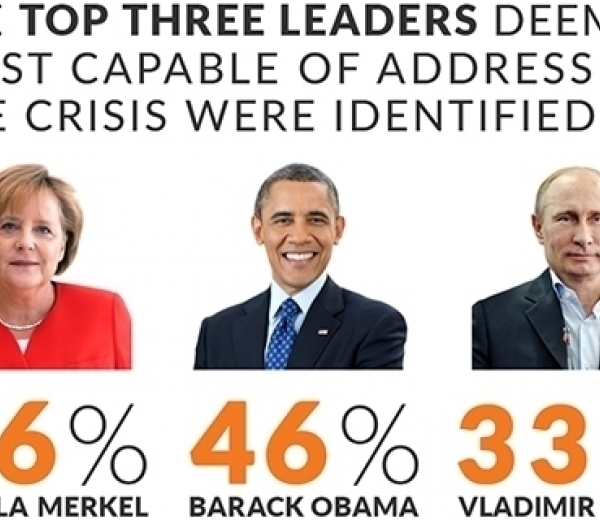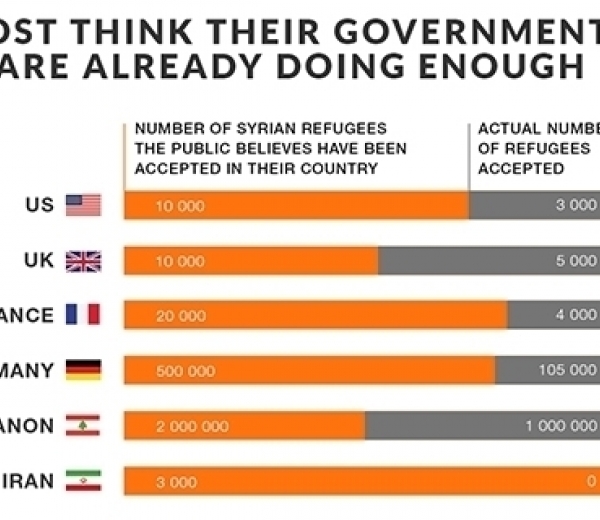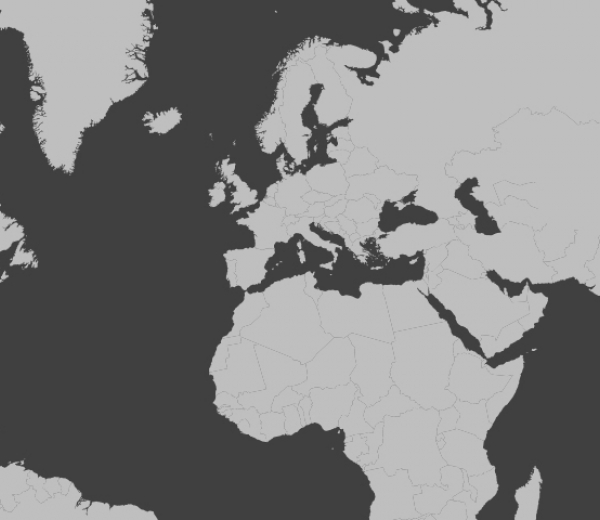Aurora Humanitarian Index 2016: Leadership Vacuum
When it comes to identifying international leaders most capable of managing the Syrian crisis Barack Obama (46%) and Angela Merkel (46%) score the highest, followed by Vladimir Putin (33%) and David Cameron (28%) with Hilary Clinton (17%) and Donald Trump (9%) trailing far behind. The French have placed more faith in Angela Merkel than Francois Hollande (51% vs. 36% respectively) and the British believe Merkel is just as capable as David Cameron (41% vs.39%, respectively) to address the crisis.
United Nations Secretary General Ban Ki-moon scored well in Lebanon (39%) and Iran (37%), but U.S. presidential hopefuls Hillary Clinton (23%) and Donald Trump (16%) fell way behind other world leaders amongst American audiences.

"The global refugee crisis will only get worse unless world leaders agree better coordinated and principled action, and are buttressed by a better-informed public awareness of its true causes and dimensions,” commented Jean-Marie Guéhenno, President of the International Crisis Group, an independent conflict-prevention organization. “Frontline states taking in refugees from neighboring wars are overwhelmed by the economic, social, human rights, political and security implications of rapid, massive influxes of people. Any failure to address the situation risks further conflict, triggering further refugee flows and increasing the scale of the humanitarian tragedy. Ultimately, any credible response to the crisis must address its principal driver – an upsurge in wars".
On the issue of forced migration, many Western publics believe their governments have done more than enough to offer refuge to those in need. The U.K. public believes their country has taken twice as many Syrian refugees as they actually have. In France and Germany, estimates of the number of Syrians given asylum due to conflict are five times greater than the actual figures. In contrast, the public underplays the role of neighboring countries in taking refugees. Only 15% correctly identify Turkey as the country with the highest intake of refugees globally, and only 2% recognize Pakistan’s role in offering safe refuge.

You can read more about the Aurora Humanitarian Index 2016 here.

